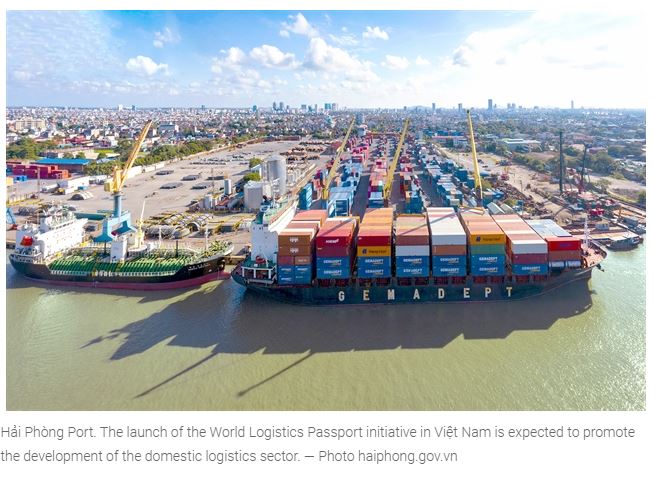Vietnam an important hub in World Logistics Passport network
WIth the launch of the World Logistics Passport initiative in Việt Nam, the domestic logistics sector will reap more successes, optimising and sharing the interest of the programme amid extensive international integration.
HÀ NỘI — Việt Nam will be an important logistics and trade hub of the World Logistics Passport (WLP) network, given the country’s strategic position as the transshipment and manufacturing hub of the region, Abdulla Alsuwaidi, WLP Manager and Lead of Partnerships and Hubs, said.
He was speaking at a seminar held in Hà Nội on Tuesday to launch the WLP initiative in Việt Nam and discuss the possibility of strengthening cooperation on logistics between Việt Nam and the United Arab Emirates (UAE).
The WLP is a global, private sector-led initiative designed to smooth the flow of global trade, unlock market access and provide economic efficiencies to members.
Enabled by key logistics partners such as airports, ports, and customs, the WLP offers financial and non-financial benefits to traders and freight forwarders as a reward for increasing their trade.
The WLP, the world’s first global freight loyalty scheme, benefits businesses by reducing their supply chain costs and ensuring that goods will be moved faster and more efficiently.
Việt Nam is listed among 29 regional logistics and trade hubs of the programme from May 2021 with five businesses becoming its partners.
UAE Ambassador to Việt Nam Bader Abdulla Al Matrooshi said that the UAE is one of the largest trade partners of Việt Nam in the Middle East region with two-way trade reaching US$8 billion in 2022.
With the introduction of more ideas like the WLP, trade between the two countries is expected to increase through the improvement of trade and economic interests of signature partners, thus drawing more partners.
He thanked the Ministry of Industry and Trade (MoIT) and relevant agencies of Việt Nam for creating optimal conditions for bilateral economic cooperation, expressing his hope that the partnership between UAE and Vietnamese businesses will continue to rise.
Trần Thanh Hải, Deputy Director of the Foreign Trade Agency under the Ministry of Industry and Trade, held that facilitating trade and strengthening national competitiveness have been a focus of not only the industry and trade sector but the whole logistics ecosystem of the country.
Hải said he hoped that with the launch of the WLP initiative in Việt Nam, the domestic logistics sector will reap more successes, optimising and sharing the interest of the programme amid extensive international integration. The launch should also help promote trade between Việt Nam and the UAE as well as trade among members of the whole WLP network.
Products and goods of Việt Nam when granted WLP by the UAE would be supported in terms of customs clearance, air tax exemption, reduction of inspection time and loading, reducing storage time by up to 48 hours and early customs clearance which could help save up to 40 per cent of costs.
To date, 22 enterprises providing logistics services in Việt Nam registered to participate as members of the WLP programme.
Nguyễn Phúc Nam, Deputy Director of the ministry’s Asia-Africa Market Department, underlined that the WLP and Vietnamese stakeholders should work together to remove bottlenecks in the supply chains in particular areas and sectors, especially amid the interruption of supply chains, thus adding more Vietnamese firms to the WLP network and optimising the efficiency of Việt Nam’s strategic location.
At the seminar, the WLP signed agreements to implement the initiative with Vietnamese partners, including Vietnam Airlines Corporation, Railway Transport and Trade JSC (RATRACO), T&Y Superport Vĩnh Phúc JSC, Viet Nam Shippers’ Council (VNSC), and Vietnam Coffee Cocoa Association (Vicofa).
WLP is built to reduce non-tariff barriers in international trade by reducing the time and cost of operating logistics services. The WLP network spans over 48 countries on all continents and over 15 trade corridors in the global supply chain, accounting for 47 per cent of global trade. — VNS


 Thailand
Thailand




